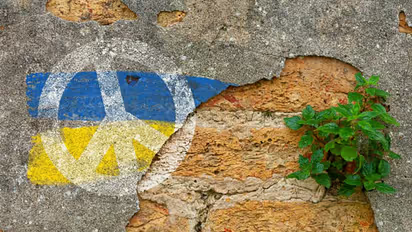Russia-Ukraine war: How global equations and relations changed in a year

Synopsis
Since Russia launched Ukraine's military invasion a year ago, global politics, relations and equations have transformed tremendously. Dr Swasti Rao, Associate Fellow at Manohar Parrikar-IDSA's Europe and Eurasia Centre, lists the prominent changes the world has witnessed in the last year.
Since Russia launched Ukraine's military invasion a year ago, global politics, relations and equations have undergone tremendous transformation. Asianet Newsable reached out to Dr Swasti Rao, Associate Fellow at Manohar Parrikar-IDSA's Europe and Eurasia Centre, to understand the prominent changes the world has witnessed in the last year.
Also Read: 'Vladimir Putin's war has been a strategic failure... Ukraine still stands'
Revilatised NATO
Dr Swasti Rao said: "The first change is that it (the Russia-Ukraine war) has revitalized the North Atlantic Treaty Organisation and united Europe. I say this because, basically, before Russia's invasion of Ukraine, NATO had actually become very redundant it started to lose meaning because Europe was completely comfortable with how they were getting energy from Russia.
NATO was slowly becoming redundant. It was not really having any meaning from the perspective of the bigger European powers because they never expected Russia to do what it did. Once the war happened, Europeans woke up from their dream. They thought they were always secure. They had too much confidence in the bigger players, France and Germany.
And not just that, the war has also allowed NATO to reinvent itself. It has listed China as a major security concern for the first time, and what it shows us is that now NATO is perhaps pivoting to Asia in many ways. So this would have implications for India also."
Why a United Europe?
"Before the war, there were a lot of fractures within Europe. France was not getting along with NATO. France and Germany were on a different page, there was Brexit happening, etc. So what the war has done is that it has United Europe, and the very fact that they are able to achieve the diversification from Russia has also happened because they have acted in a united manner."
End of cowboy capitalism
"There has been an emergence of trusted connections because the global trade is shifting and will shift even more from merely-cost effective supply chains to resilient supply chains. It is not just the efficiency factor, but it is also the resilience factor. Countries now realize that they should trade in patterns, which are not merely cost-effective. Not only profit but the trust factor is also becoming very-very important. In many ways, it indicates the end of the era of cowboy capitalism.
There has been a massive very routing of Russian oil particularly and India has emerged as a major destination for it, Before the war started, India was getting 0.2% of Russian oil in January 2023. Now, it has gone up to 28 per cent because of the fact that Russian oil is steeply discounted.
Earlier, most of the Russian oil was flowing to Europe. Now, most of the Russian oil is flowing to China, India and Turkey. This rerouting has also brought a reset in Europe's energy map because Europe was heavily dependent on Russian energy. Now, it's getting its energy, both oil and gas, from different sources. India is getting cheap Russian oil, which it refines and sells to the West and makes a lot of money also from there."
Dragon and Bear equation becoming stronger
"Dragon here means China, while Bear stands for Russia. So what the war has done is that it has pushed Russia further into the lap of China and this dragon-bear equation is going to bifurcate the global political system to a larger extent. In many ways, it has shown that there are two rival camps in the world -- one led by the West and the US, Japan and Australia and on the other being led by China and Russia."
Global South
"India has been trying to reinstate faith in multilateral multilateralism through its presidency of platforms like the G20 and among others. India has been consistently maintaining that there is a large section of the world which rejects the alliance worldwide because it needs to multi-align. It needs to believe in the era of multipolarity."
Also Read: Olaf Scholz's visit to India: Decoding the German outreach
Check the Breaking News Today and Latest News from across India and around the world. Stay updated with the latest World News and global developments from politics to economy and current affairs. Get in-depth coverage of China News, Europe News, Pakistan News, and South Asia News, along with top headlines from the UK and US. Follow expert analysis, international trends, and breaking updates from around the globe. Download the Asianet News Official App from the Android Play Store and iPhone App Store for accurate and timely news updates anytime, anywhere.